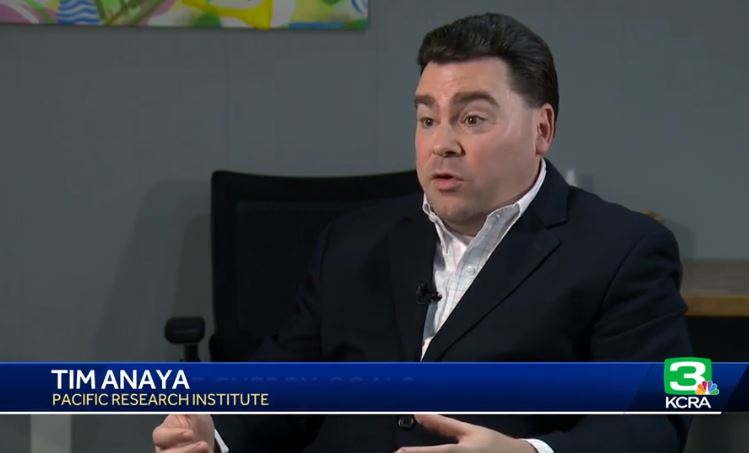Benjamin Franklin famously said that there are only two things certain in life – death and taxes. In California, you could add a third – hatred of the DMV.
Anyone who has ever signed up for a driver’s license or register a vehicle knows just how inefficient, and at times hostile, the DMV can be. They cling to outdated thinking, as if their primary mission is registering horse buggies to drive on California’s roads.
The DMV is the poster child for an unaccountable government bureaucracy – and the current scandal over astronomical wait times at DMV offices shows they still don’t get it.
The federal REAL ID, enacted in 2005, requires California to change its state-issued driver’s licenses and ID cards to meet new federal requirements. By October 2020, every Californian will need a REAL ID to fly on an airplane or enter a federal government building. You must go to the DMV in person for ID verification before you can get one.
DMV wait times are unbearable under normal circumstances. They are certainly ill-equipped to handle more than 23 million people expected to come through their doors through 2020.
Both Democrats and Republicans are outraged. They grilled DMV Director Jean Shiomoto at a committee hearing this week.
San Francisco Democrat Phil Ting said that he was shocked after visiting a DMV office in his district. “What we’ve been hearing are horrific wait times of six or seven hours. That’s unacceptable.”
Laughably, in a July letter to lawmakers, DMV says that “the current statewide average wait time once customers check-in with the ‘Start Here’ window is 23 minutes for customers with appointments and 1 hour 23 minutes for customers without appointments.”
Assemblywoman Laura Friedman, D-Glendale, told Shiomoto at the hearing that, “you have perpetuated the feeling that people can’t trust your agency.” She’s right, and the Director inspired no confidence in lawmakers at 2 Capitol hearings this week that the agency can turn things around any time soon.
Predictably, Shiomoto asked lawmakers for more money at this week’s hearing – another $26 million.
The state has already given the DMV $70 million in additional funds to open more offices, expand hours, and hire additional personnel to handle the influx. The DMV estimates it will need to spend over $220 million over the next 6 years to process all the applications. That money clearly won’t address the other problems identified in this week’s hearings, namely the poor customer service culture and outdated/inefficient thinking that goes into department operations.
Assemblyman Jim Patterson was fed up after receiving numerous angry complaints from constituents. He authored a request for the State Auditor to audit the DMV’s activities and how they are spending these additional resources.
Patterson’s audit would be one expenditure of public funds that’s actually worth every penny. Taxpayers deserve to know just how bad things really are at the DMV and a nonpartisan audit is needed to document this and outline steps to reform the beleaguered agency and its operations.
Despite lawmakers showing their lack of confidence in Shiomoto’s leadership, the audit request failed to get enough Senate Democrat votes to pass (the request needed 4 votes each from the Assembly and Senate), despite bipartisan votes in both houses. It’s a shame that something both parties seemingly agree on falls victim to today’s toxic political climate.
The DMV has long been overdue for a complete overhaul, and most important, an attitude adjustment. Hopefully, the Real ID wait time scandal will be the catalyst that forces much-need change upon a stubborn department clinging to the ways of the past.
Tim Anaya is communications director for the Pacific Research Institute.

